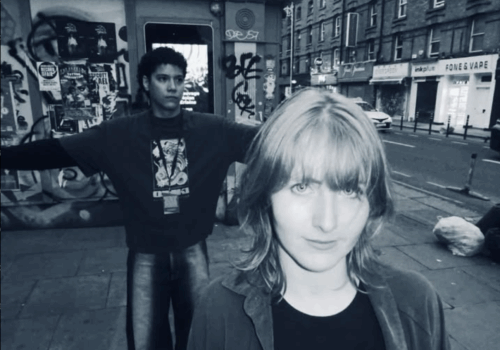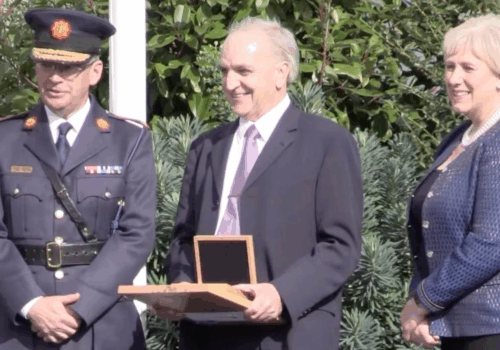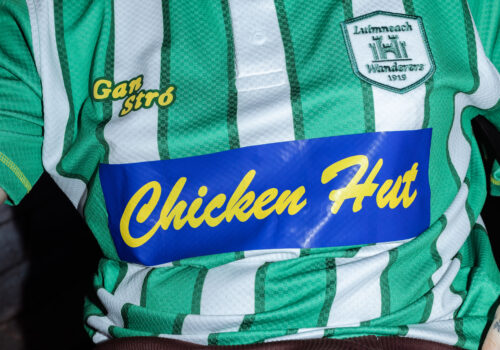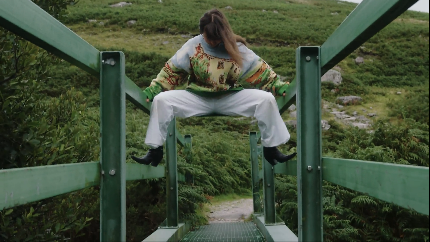What You Should Know About Dublin Pride
Words: Ciarán Howley
Images: Dublin Pride, Her.ie, Irish Queer Archive, Tom of Finland.
As Dublin Pride approaches, the capital’s queer community prepares for a weekend of celebration, solidarity and some cracking events.
The annual Pride festival is a series of organised festivities dedicated to celebrating the LGBTQ+ community in Ireland, strengthening visibility in the face of social stigma and partying in the name of liberation.
Pride is as much a big auld jamboree as it is a protest against homophobia, transphobia, and all forms of bigotry. Taking place yearly in June, each county is allocated its specific dates to celebrate Pride within its own county-specific culture.
Although celebrated worldwide, Irish Pride has its unique history and identity worthy of discussion. With Dublin Pride just around the corner, let us help you get to grips with some history you may not have known about the city’s most colourful celebration.
The March ≠ The Parade
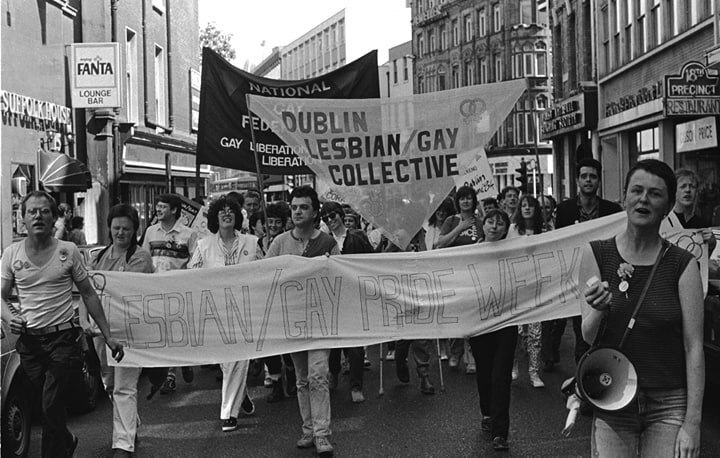
In Dublin, the Pride march and the Pride parade are two events; of equal importance but intrinsically different. The parade is an unashamed celebration of queer joy, while the march is a means of protesting against the discrimination, oppression and violence the community routinely faces.
Dublin Pride encourages attendees to rock up to the march with banners, placards and, most importantly, to make as much noise as possible. While milestones like ‘Mar-Ref’ and the Gender Recognition Act have laid the necessary groundwork, the resistant spirit of the march is vital this year, with hate crimes increasingly increasing in Dublin.
The Role of Declan Flynn’s Murder
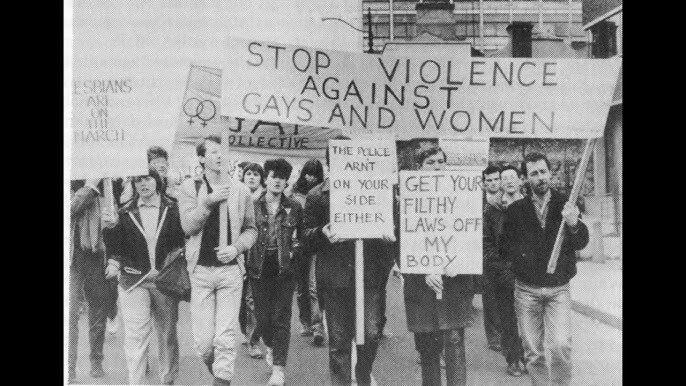
Declan Flynn was a gay man violently murdered in Fairview Park in 1982 in a case of queer-bashing. His death and the subsequent leniency of the court sparked marches across Dublin city. The five men were handed suspended sentences under a verdict of manslaughter, despite testimony from one offender confirming the intention to “bash a q***r” that fateful night.
Organised by the National LGBT Federation, the marches stood up against the escalating rates of queer-bashing across the country and called for the decriminalisation of homosexuality to ensure greater protection for LGBTQ individuals in the Republic. This would culminate in the historic ‘Norris vs Ireland’ case that saw homosexuality legalised in 1992.
Flynn’s tragic death is deeply linked with the social movements that saw greater LGBTQ+ equality achieved in Ireland and a bittersweet reminder of why the community takes to the street to march.
Each Year Has a Theme
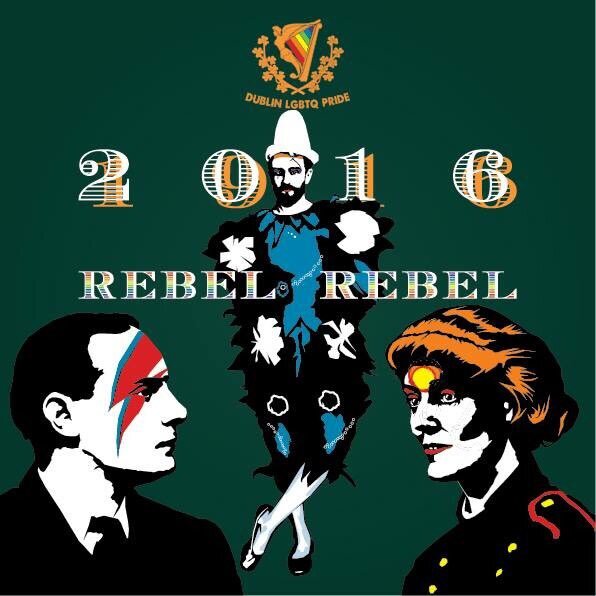
Each annual Dublin Pride is celebrated with a theme, often to commemorate significant events or milestones within the LGBTQ+ community of any given year. Participants are welcome to interpret the theme however they wish, and dress-up is always encouraged.
This year’s theme is ‘Uchtach / Courage’, while past themes have included ‘Rebel Rebel’ to honour the passing of David Bowie and the centenary of the 1916 Rising, and ‘We are Family’ in 2018, a middle finger to the lack of representation of queer families at the Catholic Festival World Meeting of Families.
Events of, and for, all Sorts
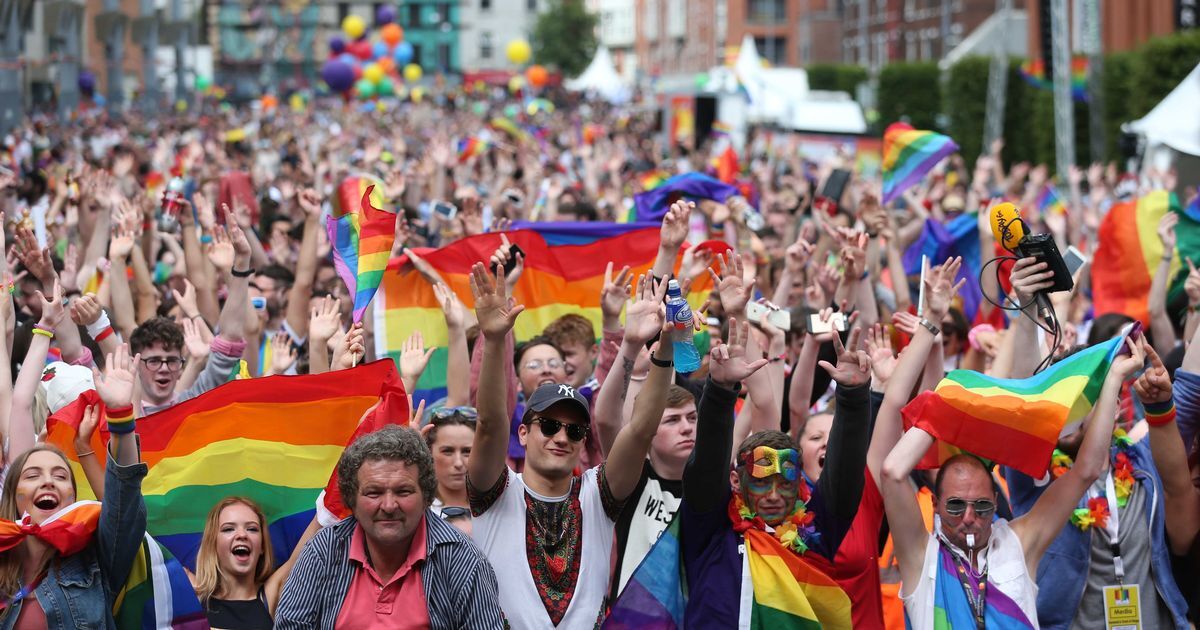
While partying and knocking back a few are essential tenets of the annual festivities, Dublin Pride hosts a wide variety of events to cater to all interests.
Those interested in more niche happenings can take part in Queer History of Dublin Walking Tour by Lavender, a poetry and spoken word open mic at Street 66 and a production’ Party Scene’ from THISISPOPBABY offering an intimate portrayal of Dublin’s historic queer nightlife.
Dublin Pride is Kink Friendly
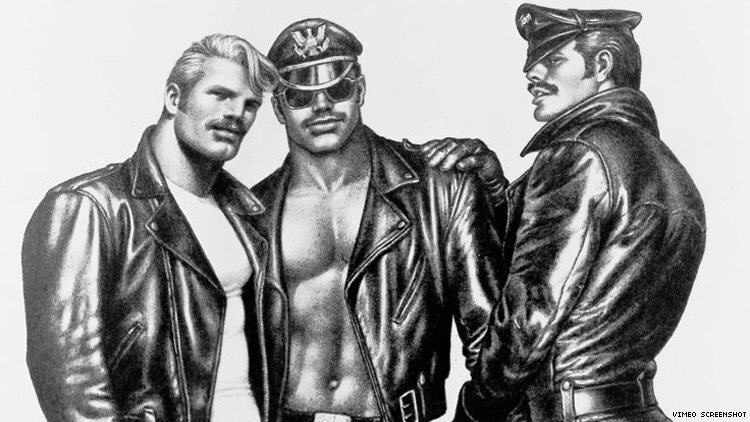
Dublin Pride is open to all and to everyone, including those on the kinkier side of things. This year features a number of events catering to doms, pups, leather daddies and everyone in between. Sunday the 25th sees ‘SLEEK: A Gender-Inclusive Pride and Fetish Party‘; with proceeds in aid of the Irish Red Cross Ukrainian Appeal.
Across the city at Fibber McGees see Geared Ireland and Furry Glen unite for an event for the Kink and Bear Community, with music from Martin McCann and Gerry Moore.
Elsewhere on District: HONEYPOT, a “community for gay girls and friends”, launches on July 15
